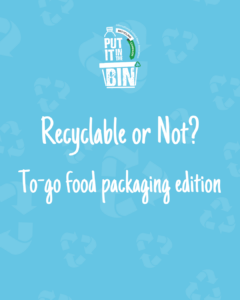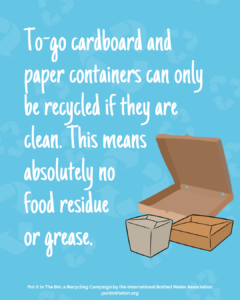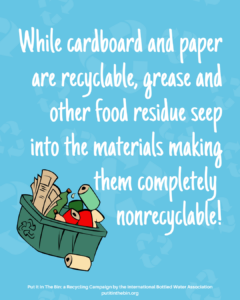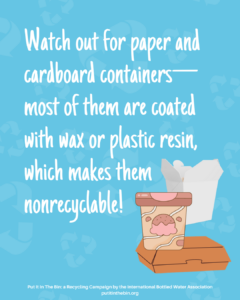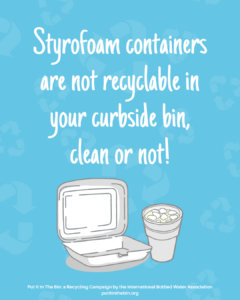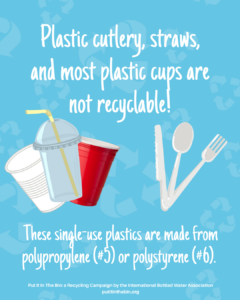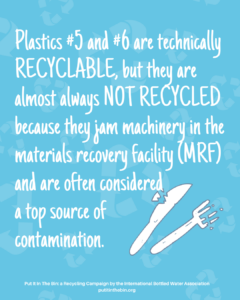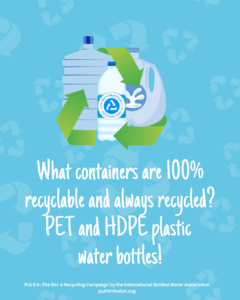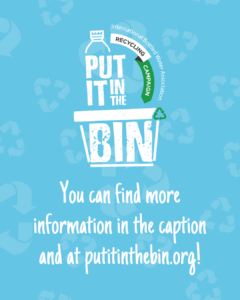#RecylableOrNot
Fact: Water Packaged in Paper Cartons Is NOT Better
Confused about what can be recycled? It’s not you, it’s them.
Not all recyclable materials are the same, and not all recycling rules are the same. Rules are made on a city-by-city basis, but here are some of the most common to-go packaging dos and don’ts when recycling:
Paper and cardboard containers need to be completely clean for recycling facilities to be able to recycle them. The food residue and grease on these containers seep into the paper material, deeming them contaminated and no longer recyclable. Wet or greasy paper/cardboard is harder to recycle due to shorter fibers, which makes them less valuable to a recycling processor. Putting these contaminated materials in the bin may also contaminate other paper materials, making them nonrecyclable as well! Best to just keep them out of the bin and in the trash.
Always examine your paper and cardboard containers before you put them in the bin—not only for grease but also for wax or plastic coating. Most of these containers are coated with wax or plastic resin to prevent seepage or stop the migration of other materials from getting into the food, which makes that container a mixed material container that is not recyclable! If it’s shiny, it most likely belongs in the trash.
Expanded polystyrene (EPS, most commonly known as Styrofoam) containers, clean or not, are NOT recyclable in your curbside bin. Although these containers may have a recycling #6 symbol, not many facilities process them. Some specialty recyclers may accept EPS, but you’ll have to do your research and check your local municipality.
Most plastic cups, straws, and cutlery are made from polypropylene (#5) or polystyrene (#6). These plastics are technically recyclable, but there are a few issues with these single-use products. Both of these plastics are widely not accepted or processed because they have a small recycling market, the majority of them are single-packaged and not marked with the type of plastic they’re made of, they commonly jam the machines, and are often considered a top source of contamination.
PET and HDPE plastic bottles are 100% recyclable AND recycled—always!
For more information about IBWA’s Social Media Campaign, contact IBWA Vice President of Communications Jill Culora: jculora@bottledwater.
